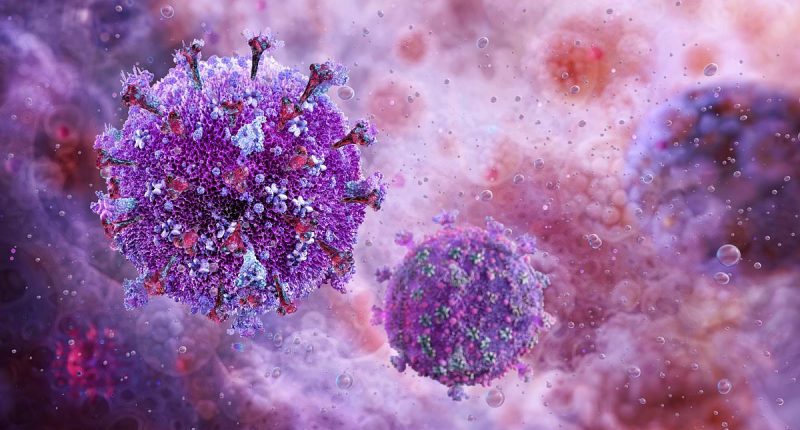Share this @internewscast.com
Experts may have moved one step closer to curing HIV for good.
Researchers in Australia have developed a new treatment that forces hidden fragments of the virus — normally concealed within human cells — to emerge and expose themselves to the immune system.
The breakthrough could enable the body, aided by antiviral drugs, to detect and destroy these lingering viral reservoirs.
HIV has remained incurable because the virus can integrate itself into a cell’s DNA, lying dormant and undetectable to both medication and immune defenses.
But the scientists say they have created a nanoparticle capable of delivering genetic instructions to infected cells, prompting them to produce a signal that reveals the virus’s presence.
Dr Paula Cevaal, research fellow at the Doherty Institute and co-author of the study, told the Guardian that this feat was ‘previously thought impossible’.
‘In the field of biomedicine, many things eventually don’t make it into the clinic,’ she said, ‘that is the unfortunate truth; I don’t want to paint a prettier picture than what is the reality’.
‘But in terms of specifically the field of HIV cure, we have never seen anything close to as good as what we are seeing, in terms of how well we are able to reveal this virus.
‘So, from that point of view, we’re very hopeful that we are also able to see this type of response in an animal, and that we could eventually do this in humans.’

Pictured above is HIV. It is able to hide within cells, making it very hard to treat (Stock image)
The discovery was first revealed in the journal Nature Communications, with researchers saying they were initially so astonished that they had to re-run the tests.
Further research will be needed to determine whether revealing the virus is enough to trigger an immune response, with the tests only being carried out in the lab.
And it could still take years before clinical trials for the drug begin, when it would have to go through rigorous testing before reaching consumers.
But the advance represents another step forward for the 1.2million Americans currently living with an HIV infection — for which they must take drugs daily.
An estimated 31,800 people are infected every year, although this is a 12 percent decline on five years ago.
Globally, nearly 40million people have the virus.
The nanoparticle is based on mRNA technology, the same that was used in the Covid vaccines made by Pfizer and other vaccine manufacturers.
In their paper, the scientists revealed that they could deliver mRNA instructions to cells using the nanoparticle.
This mRNA then instructs cells to generate substances that reveal the presence of HIV, but only if the virus is present.
The study was done in the lab, and carried out in cells donated by HIV patients.

The above graph shows the number of new HIV infections diagnosed in the US by year down to 2022. The number has dropped slightly, the figures show, although it remains high
It comes after the Trump administration was reported to have cut funding for research into a potential HIV vaccine.
The termination of the $258million research program stunned scientists at Duke University and Scripps Research Institute behind the project.
They were informed the program was being cut via email, with officials saying they would instead focus on other strategies to eliminate HIV / AIDS.
HIV disproportionately affects gay and bisexual individuals in the US, who account for an estimated 67 percent of new infections — according to 2022 data.
People who acquire HIV through heterosexual sex made up 22 percent of new diagnoses, or 8,495 cases, while those who were diagnosed after injecting drugs made up seven percent of new diagnoses, or 2,650 cases.















